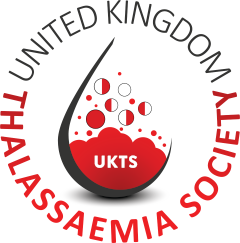Heart
Healthy habits such as eating a healthy diet, exercising, stopping smoking, drinking less alcohol, and maintaining a healthy weight are all important factors that contribute to a healthy heart. For thalassaemia patients, iron chelation is also important because this prevents iron building up in your heart which could potentially result in heart failure. Therefore, it is vital that patients practice both healthy lifestyle factors and compliance of their iron chelation treatment to protect your heart.
Here are some tips to ensure you are eating a healthy diet for your heart:
Less salt
The daily recommended intake of salt is 6g, which is roughly a teaspoon. Eating too much salt increases the risk of coronary heart disease as it increases blood pressure. Try not to add salt to your meals and use other spices instead for more flavour. It is also important to be mindful as salt is in a lot of products so you can check the salt content by checking the label.

Less sugar
The recommended intake of sugar a day is no more that 30g. Sugar is high in foods such as chocolate, biscuits, ice cream etc. Fruit is also high in sugar but this is a different type of sugar which is not as ‘bad’ for you. Sugar in processed foods such as ice cream is high in refined sugars whereas fruits have natural sugars and also provide a high source of vitamins. Therefore, reducing consumption of refined sugars is more important as these kinds of foods can lead to an increase in weight which essentially puts more strain on your heart.
More fruit and vegetables
Try to eat 5 portions of fruit and vegetables a day as they will provide you with lots of vitamins, minerals and fibre. Intake is not limited to fresh fruit and vegetables; tinned, canned, frozen and dried all contribute to your daily recommendation.
2 portions of oily fish a week
Oily fish is high in omega-3 which contributes to a healthy heart and can potentially reduce the risk of heart disease. Examples of oily fish include salmon, mackerel, herrings, sardines, trout and tuna.
Replacing saturated fat with moderate amounts of monounsaturated fat and polyunsaturated fat can also reduce harmful cholesterol
Fats:
There are 4 different sources of fats which are recommended to be eaten in different amounts:
- Saturated fat: examples include full fat dairy products, butter, cream, cheese, fat on meat, burgers, sausages and pastry
- Polyunsaturated fats: nuts, seeds, sunflower oil, rapeseed
- Monounsaturated: olive oil, rapeseed oil and some nuts including almonds, walnuts nad pecans
- Trans fats: Processed foods, fast foods, takeaways
Trans fats should also be reduced and cooking from scratch at home can help reduce consumption of these foods.
High fibre
The recommended fibre intake is 30g a day which can be achieved through a balanced diet filled with wholegrains, fruits, vegetables and pulses. The foods that are high in fibre help to prevent heart disease and help to lower cholesterol.
Choose plant-based spreads e.g. olive, rapeseed or sunflower oils
These spreads are high in sterols and stanols which reduce LDL cholesterol (bad cholesterol) by absorbing the cholesterol in the gut.
Other tips:
Research has shown that the Mediterranean diet reduced risk of heart disease. This diet consists of vegetables, olive oil, oily fish, meat, dairy and wholegrains.
- An active lifestyle to achieve a healthy weight which will in turn reduce LDL cholesterol levels (bad cholesterol).
- Try to stop smoking and reduce alcohol intake.
